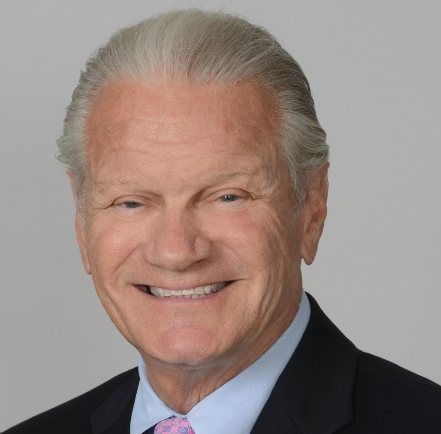In Brazil, there’s a common Portugese saying, “mala sem alça,” which translates to “a suitcase without a handle”—something that’s a pain to carry around but a shame to throw away.
That expression has been top of mind for Miami-based construction litigation attorney Gabriel Z. Coelho of Ball Janik as he unpacks the Florida Condo Safety Act, passed by the Florida legislature and signed into law by Gov. Ron DeSantis this spring in reaction to the deadly collapse of the Champlain Towers condo in Surfside last year.
“It’s big, it’s bulky, there’s no good way to get it to where it needs to go,” Coelho said of the new law. “It’s not particularly well thought out, and there’s going to be pushback in the 2023 legislature because of it.”
Fulfilling his promise to review condo association regulations after the Surfside tragedy, in late May DeSantis signed Senate Bill 4-D, which requires stricter inspections and prohibits condo associations from waiving maintenance reserve funds. Since then, Coelho said, “it’s something that anyone associated with condos or condo construction is scrambling with.”
“The problem in practicality is that there are thousands and thousands of condos that all need to do this at the same time.”
Gabriel Z. Coelho
Attorney, Ball Janik
Whether for or against the new law, just about everyone agrees it presents a huge financial burden for Florida condo associations, especially in older buildings. By the end of 2024, the legislation requires condominiums that are at least three stories tall and within 3 miles of the coast be inspected by a licensed engineer or architect when they reach 25 years of age and buildings more than 3 miles inland at 30 years.
Condo associations — which until now have been allowed to waive reserve funds for maintenance — will also be required to have enough money in their reserves by 2025 to fund all repairs necessary to maintain their buildings’ structural integrity, which could easily be hundreds of thousands of dollars.
“The problem in practicality is that there are thousands and thousands of condos that all need to do this at the same time,” Coelho said. “And there’s a limited pool of engineers and architects and people who actually do the work that’s being required.”
Though it’s probably not likely because the Florida legislature is not in session again until next spring, Fort Lauderdale-based attorney Mark F. Grant of Greenspoon Marder, who has been handling real estate acquisition and development and condominium association documentation in Florida since 1976, believes it should postpone the rollout. “There’s just not enough time to get these inspections done,” he said.
The law impacts some 1.5 million condos operated by nearly 28,000 associations in the state, according to the Florida Senate’s analysis of the bill’s fiscal impact. More than 2 million Floridians live in condos that are 30 years old or older.
Eric Glazer, a partner at Fort Lauderdale-based Glazer & Sachs, who hosts the Florida HOA & Condo blog and a weekly radio show, “Condo Craze and HOAs,” said only 5% to 10% of condo associations have properly funded their reserves and about 50% have waived reserves entirely.
“I just don’t know what’s going to happen to those condos. With interest rates going up and developers having a harder time selling their units, it’s not a good time to see this happening.”

Mark Grant
Attorney, Greenspoon Marder
“It’s going to have a very significant chilling effect on the market, no two ways about it,” Glazer said.
On top of the new inspection and reserve fund requirements, Glazer pointed out, regulations requiring condo buildings that are six stories and higher to install sprinkler systems will take effect on Jan. 1, 2024.
“The number of things condo associations have to start complying with, either immediately or within the next two years, is staggering,” he said. “Is it going to be tough? Sure, it’s going to be tough. Are some people not going to be able to afford it? Absolutely.”
Forcing owners to sell
No one knows how the thousands of condo owners and HOAs will come up with the massive special assessments the new law is about to require, and developers have been taking full advantage of condo owners’ dilemma. In a process known as termination, many are buying up all the units in aging waterfront buildings so they can demolish them and build high-end residential towers on the property.
In April, the Wall Street Journal reported, Related Group and 13th Floor Investments made an offer of $500 million to buy out the unit owners at the Castle Beach condominium in bulk. Their offer of more than $750,000 for studio units was “a windfall for owners who bought in the late 1990s, when units sold for around $55,000,” the Journal stated.
“Developers are swarming,” Glazer said. “I mean, what are these people going to do? They can’t afford the assessments, so they have to sell — and developers are going to buy, buy, buy.”
That’s keeping attorneys like Grant plenty busy. But despite the deluge of new work, he’s not convinced the new law is a positive for the condo market.
“Legislators were all being contacted by reporters and constituents saying, ‘Do something to protect our buildings.’ This was an overreaction, in my opinion. It was rushed through the legislature and not given adequate thought,” Grant said. “It’s going to force many condominium unit owners to be unable to afford to live in their units, which I am sure was not the intention of the legislature.”
Waterfront condo owners who sell their entire buildings to developers can often charge double, triple or even quadruple the market rate they would get if they sold their units individually because coastal property to build new housing is so scarce and valuable, Grant said, but owners in less desirable areas further inland won’t be so lucky.
“I just don’t know what’s going to happen to those condos,” he said. “With interest rates going up and developers having a harder time selling their units, it’s not a good time to see this happening.”
Deepening an affordability crisis
The big question on everyone’s mind is where condo owners who are forced to sell their units — whether they get a good price or not — are going to go.
“Let’s say their unit was worth $300,000 and they can get $800,000,” said Martin Schwartz, a partner with Miami-based law firm Bilzin Sumberg, who is certified by the Florida Bar in condominium and planned land development. “In the current market, $800,000 won’t buy them much. So, where are they going? I don’t know.”
“What are these people going to do? They can’t afford the assessments, so they have to sell — and developers are going to buy, buy, buy.”

Eric Glazer
Attorney, Glazer & Sachs
Schwartz predicted it will take two to five years for the condo market to feel the full cost of complying with the new legislation. But when it all shakes out, he said, many owners will be forced to leave the state.
As Florida’s popularity and inflation have soared in the past couple years, the state had become the nation’s least affordable place to live, with a statewide deficit of 500,000 homes that lower- and middle-income families can afford — even before Hurricane Ian wiped out entire neighborhoods on the Southwest coast and caused an estimated $30 billion worth of damage in late September.
Schwartz predicted terminations will only accelerate after Ian because many condo associations won’t have the money to rebuild or repair buildings that were damaged or destroyed. “Typically, their insurance policies have deductibles,” he said. “So, they have to come up with the deductible, and then they’re going to have to face this new legislation.”
Florida is also dealing with an insurance crisis, with homeowners paying nearly triple the U.S. average for property insurance and many insurance companies declaring insolvency, leaving the state or refusing to write new policies there.
Coelho said the $1 billion settlement awarded to the survivors and families of the 98 people killed in the Surfside collapse “put the fear of God into insurers,” causing them to “look much more closely at potential problems with older buildings.”
The rest of the nation would be wise to take heed of the state’s situation, Coelho added. “Florida seems to be on the vanguard of the problems the rest of the country is going to have down the line when it comes to everything from climate change to population issues and everything else,” he said.
Glazer agrees. “Florida’s getting national attention because we had a building that actually collapsed,” he said. “But this is not unique to Florida. This is something that’s going to be affecting the entire country, ultimately. This is going to happen in every condominium everywhere in the United States that’s not requiring reserves. Florida clearly leads the country when it comes to condominium law.”



Responses